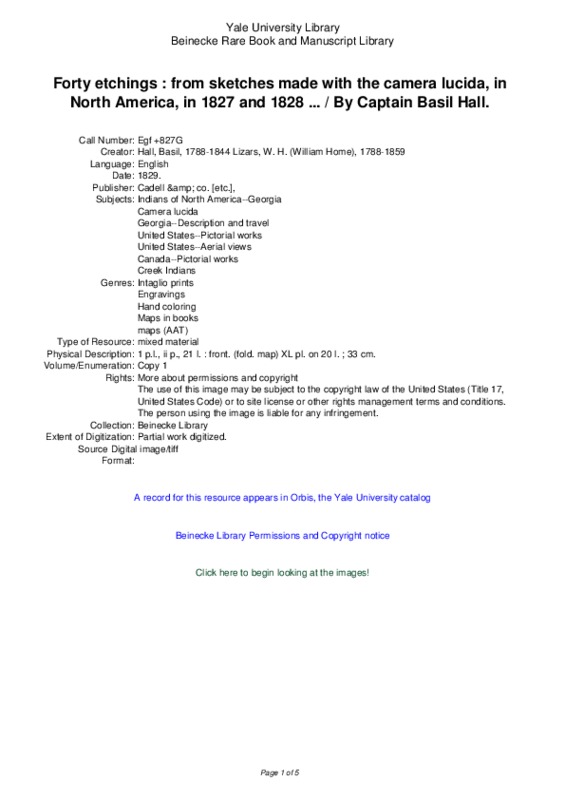Camera Lucida's Primary Use at Middlebury
Middlebury’s liberal art education included a strong program in Natural Philosophy. Natural philosophy, as a subject, was one that required a multitude of seemingly disconnected skills. Surveying might require heavy use of math and an assortment of brass tools, while astronomy might require picturing the different organizations of the heavens and thinking about higher powers. Though there is no direct evidence that showed that Professor Frederick Hall directly taught the skill of using a camera lucida to his students, it is very likely that it had a use at the college in classes such as surveying (Middlebury). Middlebury College was also home to an extensive collection of local botanical samples, collected by notable student Edwin James, where a camera Lucida would have greatly improved accuracy of drawings.
Captain Basil Hall’s letter exposes misconceptions about the camera lucida from his firsthand experience. He says: “I may observe, in the first place, that the Camera, though possessed of great powers, has no means of supplying taste, or industry, to persons, who by nature are destitute to these gifts-- neither will it enable people, who are totally ignorant of the use of the pencil, whatever be their talents, to make good drawings, without considerable practice.” In this opening to his advice, it seems that Captain Basil Hall talks about this instrument like it should be reserved for the elite artists and scientists, and not to beginners. This analysis would not be entirely accurate, as he goes on to give tips to one learning how to use the camera lucida. Instead, he is pushing the idea of how it is important to learn this skill correctly and not dismiss it as easy or purely mechanical. Skills, and the philosophy behind these skills, were passed on by Frederick Hall to his students. This created a context in which to use these skills and create men that would be think empirically on expeditions out west.

